#Thank You Teachers
Link
Show appreciation to teachers with the calming essence of green tea. Discover why green tea symbolizes gratitude, mindfulness, and relaxation, perfect for celebrating those who inspire.
0 notes
Text
Gratitude Challenge: Day 27: Thanking My Teachers & Professors
For the month of November I’m participating in a daily gratitude challenge posted by the journaling app that I use, Day One, and here’s today’s prompt:
What teacher or mentor has had a positive influence on my life?
I’ve had a few teachers who have left a positive influence in my life. In elementary school one of the few male teachers I had, Mr. Marx, read chapter books to us like James and the…

View On WordPress
#2023 Gratitude Journal#daily random shit#educators influence#JBB&039;s Daily Reflection Prompt#thank you teachers
0 notes
Text

everything is totally fine and DANDY
#art stuff#hollow knight#hollow knight fanart#hollow knight art#meme#hollow knight meme#quirrel#hk quirrel#lurien#lurien the watcher#white lady#hk white lady#ghost#little ghost#the knight#hk little ghost#herrah#herrah the beast#monomon#monomon the teacher#hornet#hk hornet#pure vessel#hk pure vessel#pale king#hk pale king#this was crazy fun to draw#thanks to the people (and you know who you are) who helped me with this#character placing hard
2K notes
·
View notes
Text
Real Event from Earlier Today
Student: *Holds out (shaking) hand* “Look, my hand is trembling involuntarily!”
Teacher:
Student: “Ha ha. Finals.”
Teacher:
Student: *Tries to jump over desk and fails badly*
Teacher: “…Are you ok?”
Student: “Yep!”
#school#gen z stuff#finals#haha oops#it’s all fine#teachers#thank you teachers#trying my best#anxiety stuff#us schools#true story
1 note
·
View note
Text
Random writing tips that my history professor just told during class that are actually helpful
Download all your sources or print them so you can turn off your wifi
Give your phone to someone
Just. WRITE. Writing is analysing, you’ll get more ideas as you write. It doesn’t need to be perfect, for now you can just blurt out words and ideas randomly. You can fix it later.
Create a skeleton/structure before writing.
Stop before you get exhausted. It’s best to stop writing when you still have some energy and inspiration left, this will also motivate you to get started again next time.
Make a to do list
Work in bite sizes. Even if it’s not much, as long as you put some ideas on paper or do some editing.
Simple language =/= boring language, simple language = clear language.
Own your words. If they are not your words, state this clearly in the text, not just in the footnotes.
STOP BEFORE YOU GET EXHAUSTED. Listing it again because it’s easily one of the best tips a teacher has ever given me.
#ive been studying for 4 years and rarely has a teacher actually given productivity tips#thank you Lies.#history student#history studyblr#essay writing#writing tips#history tips#paper writing#study blog#studyblr#adhd#neurospicy#university#college#study with adhd#study motivation#academia#studyspo#please normalise teaching students how to be productive#make studying accessible#accessibility
14K notes
·
View notes
Note
will peter be like an older brother to miles in lof ?
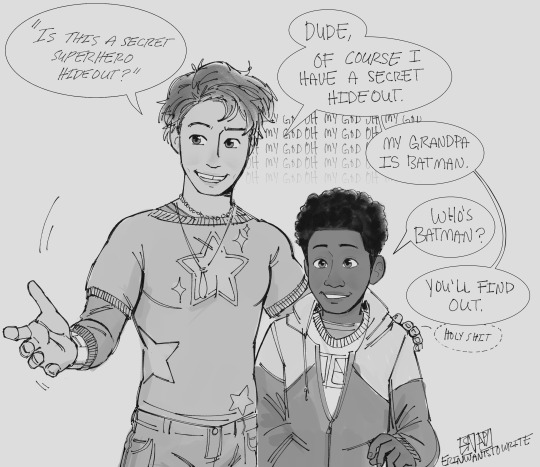
absolutely he is
there's about an 11 year difference between them (Miles is 14, Peter is 25), so it's a lot more like the older brother type of relationship that Peter has with Tim (despite Tim being his uncle). Peter has mentored(ish) other young heroes by this point (mostly in the Bats' universe) but since Miles is another Spider-Man, Peter takes up most of the responsibility in making sure Miles is safe and teaching him the ropes. That's HIS sassy child genius, thank you, and he's not a sidekick, he's Spider-Man.
He was also adamant that Miles tell his parents immediately, and gets along great with Rio and Jeff.
Which is HILARIOUS to me because at this point in time, Peter has built up a persona for the public eye just like the Bats did. In Rio and Jeff's eyes, they're gobsmacked that the clumsy, scatterbrained, and "scaredy-cat" kid that Tony Stark adopted a while ago is Spider-Man. (Technically, none of this is a lie. Because Peter is a terrible liar unless it's For the Jokes, and often comes across this way even if he hadn't meant to.) They're wondering how he pulled that off since he's the same age as Spider-Man, who is known to be an Avenger, and associates in the same circles as Peter. It helps that Peter and Spider-Man have been in a social media war, and that Peter works at the Daily Bugle that is known for disliking Spider-Man. Peter's been taking lessons for years atp to keep his identity safe. Which is also bonus points to Peter, because the two can tell that secret identities mean everything to him, but he told them who he was in a heartbeat (literally the very first thing he did when he found Miles).
In other words: Peter was ecstatic to become a teacher for his own matching superhero kid and it's one of the most important bonds in his life. That's his baby brother now!!
#erinwantstowrite#ao3#ao3 fanfic#leap of faith ao3#peter parker#leap of faith catch me if you can#leap of faith#miles morales#peter parker is a GOOD mentor#a great one even#he takes that shit so seriously despite it looking like he's always just telling jokes from an outside perspective#you know those folders you go home with when you're a kid#the ones where your teacher puts stickers and talks about how your day/week went and your homework#peter has one of those that's really just a journal written to make it look like miles is taking after school classes with him at SI#and miles has to give it to his parents to look over#“You got three gold stars today!”#“yeah 'cause i didn't get blown up :)”#“that's my boy!”#rio was like “wtaf” at first but she quickly was like “oh so if anyone is gonna help miles stay alive it's this kid”#thank you for the ask!
412 notes
·
View notes
Photo

Happy World Teachers Day!
#world teachers day#teachers day#teachers#teacher appreciation#thank you teachers#dorr township library
1 note
·
View note
Text

It's October 5th, 👩🏽🏫 World Teachers Day! The United Nations Educational, Scientific, and Cultural Organization (UNESCO) chose this day to celebrate teachers because on October 5th, 1966, it adopted the Recommendation on the Status of Teachers, which sets standards for teachers' initial preparation, education, recruitment, employment, further education, and teaching and learning conditions; and benchmarks regarding their rights and responsibilities.
Today is a day to celebrate how teachers are transforming education, but also to reflect on the support they need to fully deploy their vocation and talents, and to rethink the way ahead for the profession globally. The theme for World Teachers' Day 2022 is “The transformation of education begins with teachers.” UNESCO-organized celebrations will address the commitments and calls for action made at the Transforming Education Summit in September 2022, and analyze the implications they have for teachers.
Almost all of us have had a favorite teacher who went above and beyond to encourage us because he or she could see our potential. Matilda had Ms. Honey, Harry had Dumbledore, and Cady had Ms. Norbury. There's no debating that teachers work hard to help young people learn and grow.
World Teachers Day has been celebrated on October 5th every year since 1994. Considering that teachers mold future generations, taking one day out of the year to say “thank you” is the least we can do, isn't it? ☮️ Peace… Jamiese of Pixoplanet
#world teachers day#teachers day#teachers#education#teacher#happy teachers day#teacher life#teacher appreciation#school#world teacher day#teaching#thank you teachers#teacher day#thank you#hari gurus edunia#learning#thank a teacher#i teach#unesco#teachers rock#international teachers day#happy world teachers day#student#guru#children#wtd#teachers day gift#national teachers day
1 note
·
View note
Text
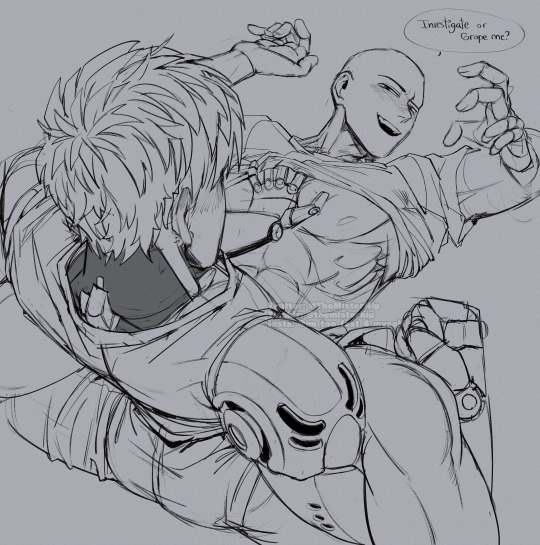
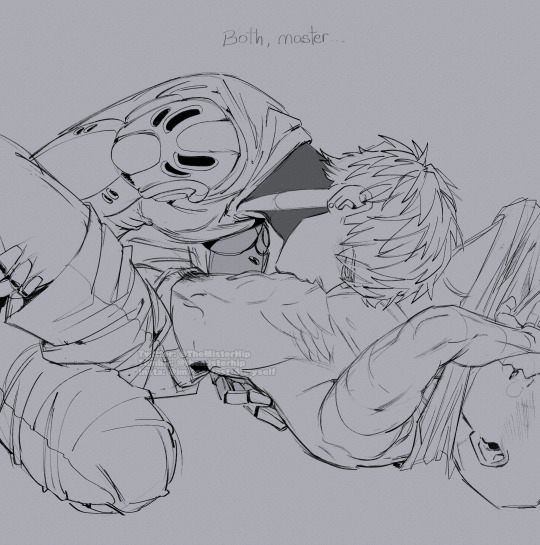
"Let me worship you..."
Fanart inspired by this fanfic (NSFW) made by @theomnicode
(READ IT, IS AMAZING ( ⸝⸝´꒳`⸝⸝))
Also hey, I'm not dead :D (read the notes for info)
Have a hot sneak peak:
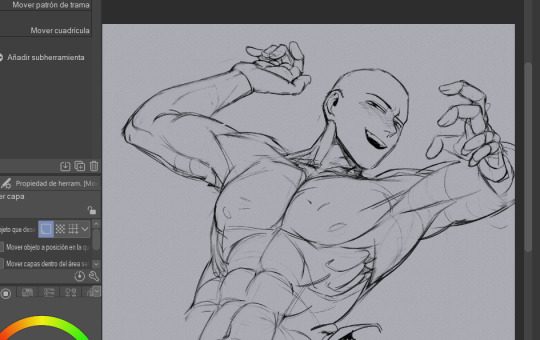
#opm#one punch man#opm genos#opm saitama#saigenos#genosai#art#comic#digital art#doodles#intimate#hello! i'm here hehehe#the reason why i dissapeared is bc a bad experience in my career and a bad teacher too. Is nothing too extreme but i couldn't draw for a#while and i needed a break of everything#I'm still gonna do spiderverse/trigun and opm ofcourse#but i also gonna have to catch up with my comissions due to this break#i didn't want my accounts to die and omni's fic gave me inspiration#so i hope you all can forgive me for not uploading and#hope you like the drawing!#thanks and bye#<3
2K notes
·
View notes
Text

he probably doesn’t have to do taxes
#i did not have my eye on the time tonight#i was testing out brushes a lot with this as well#thanks to my old teacher for having a really cool instagram and letting me use her pics as reference#uhhhhhh#i didn’t know what to title this so random bs is what you get#yeah#anyways have a great day :)#froggtogs#art#fanart#legend of zelda#tears of the kingdom#totk link#totk#loz botw#loz totk#totk fanart
2K notes
·
View notes
Text
I just learned today that one of my best friends from middle school has recently taken her own life. She knew the Lord and was one of the most gentle and sweet souls that I know. I believe she took it very hard when her brother did the same thing 7 years ago. Please pray for her parents, they are some of the sweetest people I have met and faithful to the Lord and have not done anything to deserve this
#all right guys#thank you for praying#please continue to pray for the family and community#she was a grade school teacher...
459 notes
·
View notes
Text

Hey everyone! Sorry I was gone for so long, I was busy with a project in another fandom. But I want to come back to drawing a mix of my interests again! Here's a watercolor Monomon :)
#Bit of an update: I got into college! Not sure what that means for art in the future but we'll see#I'm going to be doing artfight again (posting later probably)#And am also setting up a Kofi with a new commission system coming soon!#Thank you all for the patience C:#hollow knight#hollow knight art#hk fanart#hollow knight fanart#monomon#monomon the teacher#watercolor#watercolour art
315 notes
·
View notes
Note
Hi! I’m starting to learn French and one thing that’s both cool and weird to me is how everything is gendered in a way (referring to someone/whose saying the statement/etc.) and I was wondering how that relates to people who identity as non-binary or gender fluid in France? Are there equivalents to they/them pronouns or neo pronouns in French?
I do plan on doing my own research about this but I figured since I love your blog and you’re really open about different cultural lgbtq+ communities I’d try here first!
That's an awesome question... with a complicated answer lmao. So buckle up and bear with me !
Basically, you can't be non-binary in French. The community found ways to do it but it's not mainstream. Most of the time, they're going to get misgendered or will have to misgender themselves to get understood.
Some things I'm going to list here are not proper French. Actually, they can even be forbidden in some circumstances, according to the law (the use of inclusive language, and more specifically le point médian, was made illegal in schools in 2021 for ex) or simply because your company etc forbids it. So use this wisely, there is a time and place for inclusive language in France.
That said, things have greatly developed over the last two decades. Which was partly because of the queer community and mainly because of feminists, who are tired of the way French erases women. More and more people are using inclusive language, at least in some circumstances and circles (for ex, i wrote my master's thesis in inclusive language and it was accepted bc i was in a leftist faculty). And inclusive language is debated as a serious issue now, which is saying something.
So, how do you use inclusive language in practice?
There are different ways, as it's informal and mostly new. People are still testing new things and trying out various methods. You can stick to one or alternate or mix them up.
Pronouns
Officially, there isn't a gender neutral pronoun. We don't have an equivalent to they. You're either talking about a man or a woman. If it's both, you use masculine pronouns ("masculine trumps feminine" rule). Same thing if you don't know the gender of the person ("masculin générique").
The most common neopronoun is "iel" (plural : iels), which is obviously a contraction of the masculine pronoun "il" and its feminine equivalent "elle". It works for nb folks or to avoid talking about someone's gender or to refer to a group of men and women. So it's equally used by the queer community and feminists.
I'm pretty sure other neopronouns exist but I can't think of any at the top of my head.
Choosing the right words
Sometimes, inclusive language is just about learning to use alternatives.
Instead of using gendered words, you can choose to use gender-neutral words or words "épicènes", aka words which are identical in their feminine and masculine form. For ex, instead of "homme politique" or "femme politique", you can use "personnalité politique". Personnalité is a feminine word but it's actually gender-neutral as you can use it for women and men alike. "Élève" (student) is épicène, as a female student and a male student are both referred to as "élève". Although épicène words as a gender-neutral option only work in their plural form, as you have to choose either a feminine or masculine article for the singular ("les élèves" is inclusive but it can only be "un" or "une" élève).
As good as this method is, it can be quite limitating. Your vocabulary will be drastically reduced and it can be quite hard to master that kind of speech so you can reach the point where you don't have to think everything over for ages before you open your mouth.
With oral French, you can take it a step further by choosing words that sound the same even if they have a different spelling. Ex, friend is "ami" or "amie" but it's pronounced the same way so if you say it out loud, people can't know how you're gendering it (as long as there isn't a gendered article/word with it ofc).
It avoids misgendering people but the downside is that, as masculine is considered neutral in French, people will often think : no gender specified = masculine. Not even because they're sexist or whatever, it's just so ingrained in our brains that it's a knee-jerk reaction.
That's also why most feminists often prefer to use explicitly feminine words when talking about women. For ex, they prefer the word "autrice" to "auteure" (female writer) because the second one sounds the same as its masculine version "auteur". And as previously mentionned, out loud, people will assume by default you're talking about a man. It's a big debate though, lots of women prefer words that sound masculine - going as far as refusing to use feminine words at all! Which sounds cool and gender-bending as fuck but in reality comes from feminine words traditionally seen as less legitimate and serious. Even today, if you look up the word empress "impératrice" in a French dictionary, the first definition that comes up is "wife of an emperor". "Woman ruling a country" comes second. Using a masculine title to refer to women can also be a way to mock them and show they're not welcome (a french deputy got fined in 2014 because he called the female president of the national assembly "Madame le président" and refused to use the feminine title "Madame la présidente").
Recently the tendency and official guidelines have been to feminize words, so I'd say go with that by default, but respect other people's choice if they specify how they want to be called.
Anyway I'm getting off-track but what I meant was that in French, if you avoid talking about gender, you're automatically erasing women (and nb people). So if you want to include everyone, you need to make it obvious.
Inclusivity as a statement
The most common way to make women and men equally visible is the "point médian" rule, which you can also use to refer to non-binary people as it avoids picking a specific gender.
Basically, it means pasting together the masculine and feminine forms of a word and using dots/middle dots/hyphens/parentheses/capital letters to create an inclusive word. For ex, instead of saying acteur (♂️) or actrice (♀️) for actor, you'll write "acteur.ice". For the plural form, there are two schools of thought : either you separate the feminine and masculine form AND the suffix used to signify the plural, or you don't. Aka, "acteur.ice.s" or "acteur.ices". Personally I prefer the second option because less dots makes it easier to read and faster to write, but it's an individual choice, both work.
There are two major downsides to this method : it only works in writing + it isn't doable for every word, as feminine and masculine words can be quite different and pasting them together that way would be unintelligible. Ex, "copain" and "copine" (friend or boyfriend/girlfriend depending on the context) would give something like "cop.ain.ine"...
You can work around that by choosing alternative words (as previously stated!). And it's still a pretty good method, especially as it works for any type of word (adjectives etc). Some people argue that it's hard to read and ugly but personally I think it's just a matter of habit (although it does pose a problem for people using screen readers). Be aware that it is the most controversial version of inclusive writing, as it's the furthest structure from how languages typically work.
If you don't like dots or want an alternative for oral speech, you can also straight up create new words that sound both feminine and masculine, making them gender-neutral. To use the previous example, "copain" and "copine" become "copaine".
Obviously, this only works if it's obvious which words they're based on. I think it's a great way to make French more inclusive but I'd advise against using it with uninitiated people as it would probably confuse them more than anything. This method is still quite niche.
An inclusive, yet binary language
As you've probably figured out, inclusive language remains quite binary in the way we approach it. It's more about making things both masculine and feminine than transcending gender and creating gender-neutral alternatives. Probably because inclusive language was more often a will to stop women from being erased rather than a non-binary friendly gesture.
Which means, there are also some rules that were created to avoid the "masculine trumps feminine rule" but don't allow room for non-binarity at all. I'll still explain them because they're interesting and you might encounter them at some point.
The proximity rule ("règle de proximité") is one of these. It existed in Ancient Greek and Latin but was dropped in Modern French in favor of the masculine trumps feminine rule. Basically, you gender things according to what's closest in the sentence instead of systematically using masculine words to gender a mixed group. For ex, instead of saying "Les hommes et les femmes sont beaux" you say "Les hommes et les femmes sont belles", as the subject "femmes" is closer to the adjective "beau/belle" than "hommes".
Another method is to systematically use both masculine and feminine words (which I personally find excruciating to write and read). Meaning, instead of writing "Les étudiants mangent à la cantine" (students eat at the cafeteria), you'll write "Les étudiantes et les étudiants mangent à la cantine".
This is mainly for the subject of the sentence : adjectives and such are gendered according to the masculine trumps feminine rule. The point is to explicitly include women, not to make the sentence unintelligible or gender-neutral.
When following this method, you also have to pay attention to whether you put the feminine subject first or the masculine. The rule is to follow alphabetical order. For ex, in "l'égalité entre les femmes et les hommes", "femmes" comes first because F comes before H. But in "Les auteurs et les autrices de roman", "auteurs" comes first because E comes before R. Etc.
This method is common as it's the only inclusive language you can get away with, given that it's a valid way of speaking French. It's even mandatory in some situations now, like in job descriptions for the french administration, in the spirit of gender equality.
So, how do I gender a non-binary person?
In short, you can use the pronoun iel + avoid gendered words and/or use the point médian and/or make up new words.
But keep in mind that if you're not talking to someone familiar with these rules, you'll have some explaining to do. And looots of people are still very anti inclusive language, because they're sexist and/or transphobic, ignorant, language purists, etc. A few years ago it was the thing to be angry about for conservatives and anti-feminists so it's still very controversial. But if you're in a trans inclusive queer space or talking with intersectionnal leftists, go for it !
I hope I covered everything (fellow french, don't hesitate to comment!) and didn't put you to sleep lmao. If you want to see some examples, you can look it up on Wikipedia or check #bagaitte on tumblr (it's the french queer tag) 😉
#it's a slow but steady effort!#the fact that it was accepted by my uni teachers shows how far we've come already#a decade ago it would have probably been dismissed#i don't even know if i was aware this existed a decade ago#😅#anyway THANK YOU for this ask#i hope it was comprehensive and helpful#ask#language inclusif#écriture inclusive#inclusive language#upthebaguette#bagaitte#french#languages
1K notes
·
View notes
Text
Oh i forgot to share my fanart again here
Btw
Thank You Kohei Horikoshi!!!
Thank you MHA!!
Thank you everyone!



I'll love them for the rest of my life
#fanart#boku no hero academia#mha#my hero academia#bnha#midoriya izuku#deku#bakugou katsuki#bakudeku#katsudeku#bkdk#ktdk#thank you kohei horikoshi#great explosion murder god dynamight#dynadeku#pro hero#teacher izuku#mha 430
214 notes
·
View notes
Text
just a quick thing bc it bothers me and i wanna get this off my chest
*pulls down presentation screen*
yes, both Miguel O’Hara and the Spot are antagonists to Miles
how-ever,
Miguel is an antagonist and a hero while the Spot is an antagonist and villain
that is all, thank you
#atsv#atsv spoilers#spiderman atsv#across the spiderverse#miguel o'hara#spiderman 2099#the spot#miles morales#this has been fluffy’s mini lecture about literary narrative terms#Antagonist and villain are NOT the same thing#can they be? yes but that is all dependent on the narrative and who the protagonist is#Protagonists and heroes are NOT the same thing#Can they be? Yes but like with antagonists it is all dependent on the perspective of the narrative#we are USED to seeing protagonists be heroes because many stories are in the PERSPECTIVE of heroes not villains#thank you for coming to me Ted talk#if you disagree with me go take it up with your lit teacher
1K notes
·
View notes
Text



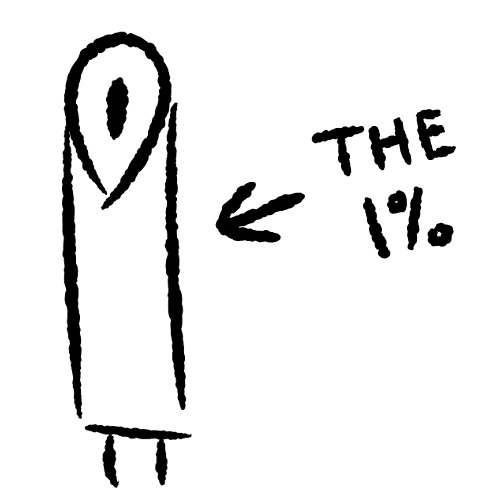
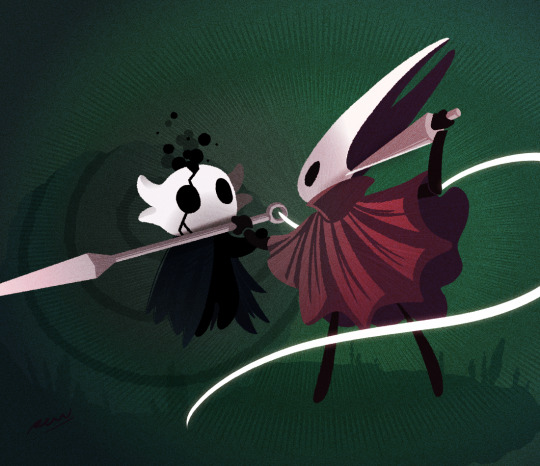

variety pack of hollow knight doodles from when i was working my way thru the first 3 pantheons
#hollow knight#hk#herrah the beast#lurien the watcher#monomon the teacher#hornet hk#hornet hollow knight#greenpath vessel#quirrel hk#quirrel hollow knight#thank you dreamers and only the dreamers for having uncommon names with titles after and making tagging this less hard#idk why lurien is so funny to me boy why are you so nothing#hes just a shape with vague context and i love that#also hornet and the gpv make me feel a few emotions theyre so interesting to chew on#my art#wheelart#wheeldoodle#wtvr my tags r
252 notes
·
View notes